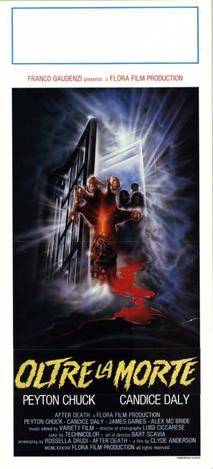Darius James | |
|---|---|
| Born | 1954 (age 69–70) United States |
| Occupation | Author |
| Genre | Non-fiction |
Darius James (aka Dr. Snakeskin, born 1954) is an African-American author and performance artist. [1] He is the author of That's Blaxploitation: Roots of the Baadasssss 'Tude (Rated X by an All-Whyte Jury), [2] an unorthodox, semi-autobiographical history of the blaxploitation film genre, and Negrophobia: An Urban Parable , a satirical novel written in screenplay form. [1]
His work is influenced by the Voodoo religion. James lives in Hamden, Connecticut.
He appeared in the 2006 film Black Deutschland (James had lived in Berlin). He co-wrote and appeared in a feature-length film released in 2013, The United States of Hoodoo. [3]

Peter Handke is an Austrian novelist, playwright, translator, poet, film director, and screenwriter. He was awarded the 2019 Nobel Prize in Literature "for an influential work that with linguistic ingenuity has explored the periphery and the specificity of human experience." Handke is considered to be one of the most influential and original German-language writers in the second half of the 20th century.

Melvin Van Peebles was an American actor, filmmaker, writer, and composer. He worked as an active filmmaker into the early 2020s. His feature film debut, The Story of a Three-Day Pass (1967), was based on his own French-language novel La Permission and was shot in France, as it was difficult for a black American director to get work at the time. The film won an award at the San Francisco International Film Festival which gained him the interest of Hollywood studios, leading to his American feature debut Watermelon Man, in 1970. Eschewing further overtures from Hollywood, he used the successes he had so far to bankroll his work as an independent filmmaker.

Mario Van Peebles is an American film director and actor best known for appearing in Heartbreak Ridge in 1986 and known for directing and starring in New Jack City in 1991 and USS Indianapolis: Men of Courage in 2016. He is the son of actor and filmmaker Melvin Van Peebles, whom he portrayed in the 2003 biopic Baadasssss!, which he also co-wrote and directed.
Goofer dust is a traditional hexing material and practice of the Black American tradition of Hoodoo from the Southern United States. It has roots in traditional Kongo religion.

Sweet Sweetback's Baadasssss Song is a 1971 American independent blaxploitation action thriller film written, co-produced, scored, edited, directed by, and starring Melvin Van Peebles. His son Mario Van Peebles also appears in a small role, playing the title character as a young boy. The film tells the picaresque story of a poor black man fleeing from the white police authorities.

Mumbo Jumbo is a 1972 novel by African-American author Ishmael Reed, originally published by Doubleday in New York. The novel has remained continuously in print in the decades since its first edition. It was first published in the UK by Allison and Busby, and has been published in translation in several languages, including French, Italian, Spanish, Japanese, as well as a Chinese translation in 2019. The novel was released as a Penguin Modern Classic in 2017.

Coonskin is a 1975 American live-action/animated satirical crime film written and directed by Ralph Bakshi. The film references the Uncle Remus folk tales, and satirizes the blaxploitation film genre as well as Disney's film Song of the South, adapted from the Uncle Remus folk tales. The film's narrative concerns three anthropomorphic Uncle Remus characters, Br'er Rabbit, referred to as Brother Rabbit, Br'er Fox, referred to as Preacher Fox, and Br'er Bear, referred to as Brother Bear. They rise to the top of the organized crime racket in Harlem, encountering corrupt law enforcement, con artists, and the Mafia, in a satire of both racism within the Hollywood film system, and America itself. The film stars Philip Thomas, Charles Gordone, Barry White, and Scatman Crothers, all of whom appear in both live-action and animated sequences.

After Death is an Italian zombie film directed by Claudio Fragasso. The film is set on a remote island where a voodoo curse raises the dead from their graves to feast on the flesh of the living. When a boat of explorers—including a young girl who experienced the zombie uprising years earlier—makes an emergency docking on the island, the crew find that their only hope for survival is a protective idol given to the young girl by her mother years ago.

What the...You Mean I Can't Sing?! is the fourth studio album by Melvin Van Peebles. Released in 1974, this album marks the first traditional music effort by Van Peebles. Previously, Van Peebles released the experimental spoken word albums Brer Soul, Ain't Supposed to Die a Natural Death and As Serious as a Heart-Attack.

Ghetto Gothic is the fifth studio album by Melvin Van Peebles. Released in 1995, this album marks the second traditional music effort by Van Peebles, after What the....You Mean I Can't Sing?! Previously, Van Peebles released the experimental spoken word albums Brer Soul, Ain't Supposed To Die a Natural Death and As Serious as a Heart-Attack.
Todd Boyd, aka "Notorious Ph.D.", is the Katherine and Frank Price Endowed Chair for the Study of Race & Popular Culture and Professor of Cinema and Media Studies in the USC School of Cinematic Arts. Boyd is a media commentator, author, producer, consultant and scholar. He is considered an expert on American popular culture and is known for his pioneering work on cinema, media, hip hop culture, fashion, art and sports. Boyd received his PhD in Communication Studies from the University of Iowa in 1991 and began his professorial career at USC in the fall of 1992.

Brer Soul is the debut studio album of Melvin Van Peebles. Released in 1968, the album introduced Van Peebles as a recording artist, following his work as an independent filmmaker, playwright and novelist. It is notable for its use of sprechgesang, a vocal style which lies between speaking and singing.
Christian Broecking was a German sociologist and musicologist, music critic, columnist, writer, editor, radio producer and author. He held teaching positions at several universities in Germany and Switzerland and published several books on African-American music and its social and political contexts, as well as on his interviews with jazz musicians such as Max Roach, Herbie Hancock, Ornette Coleman, Sonny Rolins, Gregory Porter or the Swiss composer and pianist Irène Schweitzer.
Related to closet drama, a closet screenplay is a screenplay intended not to be produced/performed but instead to be read by a solitary reader or, sometimes, out loud in a small group.

Dietmar Dath is a German author, journalist and translator.

Blaxploitation is an ethnic subgenre of the exploitation film that emerged in the United States during the early 1970s, when the combined momentum of the civil rights movement, the black power movement, and the Black Panthers spurred African-American artists to reclaim the power of depiction of their ethnicity, and institutions like UCLA to provide financial assistance for African-American students to study filmmaking. This combined with Hollywood adopting a less restrictive rating system in 1968. The term, a portmanteau of the words "black" and "exploitation", was coined in August 1972 by Junius Griffin, the president of the Beverly Hills–Hollywood NAACP branch. He claimed the genre was "proliferating offenses" to the black community in its perpetuation of stereotypes often involved in crime. After the race films of the 1940s and 1960s, the genre emerged as one of the first in which black characters and communities were protagonists, rather than sidekicks, supportive characters, or victims of brutality. The genre's inception coincides with the rethinking of race relations in the 1970s.

Terézia Mora is a German Hungarian writer, screenwriter and translator.

Andreas Dresen is a German film director. His directing credits include Cloud 9, Summer in Berlin, Grill Point and Night Shapes. His film Stopped on Track premiered at the Un Certain Regard section at the 2011 Cannes Film Festival, where it won the Prize of Un Certain Regard. Dresen is known for his realistic style, which gives his films a semi-documentary feel. He works very teamoriented and heavily uses improvisation. In 2013 he was a member of the jury at the 63rd Berlin International Film Festival.
Blaxploitation horror films are a genre of horror films involving mostly black actors. In 1972, William Crain directed what is considered to be the first blaxploitation horror film, Blacula.
Sarah Diehl is a German publicist, author, cultural scientist and documentary filmmaker on the subject of international reproductive rights of women.